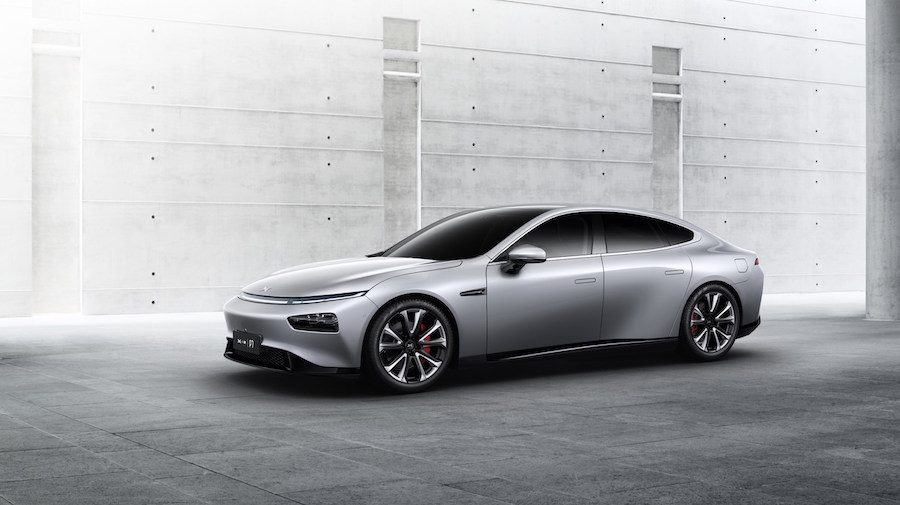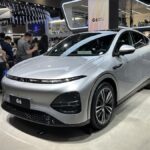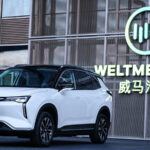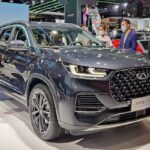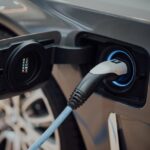What Are the Top 10 Chinese Electric Cars Brands in 2023?
The TOP 10 Chinese EV car brands(manufacturers) in 2023 are BYD, SAIC, NIO, GAC, Li Auto Inc ., Geely, XPeng, Huawei, Changan Auto, and Great Wall Motor.
| Brand | EV Sales | Average Price (RMB) | Revenue from EV (RMB Billion) | |
| 1 | BYD(比亚迪) | 1,800,000 | 160,000 | 288.00 |
| 2 | SAIC(上汽) | 534,000 | 120,000 | 64.08 |
| 3 | NIO(蔚来) | 122,000 | 404,000 | 49.27 |
| 4 | GAC(广汽) | 310,000 | 147,000 | 45.57 |
| 5 | Li Auto Inc .(理想) | 133,000 | 341,000 | 45.29 |
| 6 | Geely (吉利) | 305,000 | 100,000 | 30.50 |
| 7 | XPeng (小鹏) | 121,000 | 222,000 | 26.86 |
| 8 | Huawei(华为) | 85,000 | 275,000 | 23.38 |
| 9 | Changan Auto(长安) | 212,000 | 90,000 | 19.08 |
| 10 | Great Wall Motors (长城) | 124,000 | 122,000 | 15.13 |
China’s EV Industry Shows Diversified Landscape with Leading Players and New Innovations
China’s electric vehicle (EV) sector is experiencing a dynamic landscape with prominent players leading the way. The market can be categorized into four segments, including one leading EV manufacturer, BYD, two private car companies, Geely and Great Wall Motors, and three state-owned car companies, SAIC, GAC, and Changan Auto. Additionally, four emerging EV enterprises, namely NIO, Li Auto Inc., XPeng, and Huawei, are making significant strides in the industry.
The future of China’s EV industry is poised to develop along three major directions:
- Electrification + Intelligence: EVs equipped with autonomous driving capabilities are set to replace traditional fuel-powered vehicles. Key components for this transformation include power batteries, vehicle software and hardware, algorithm chips, and systems. EV sales are projected to reach between 8.5 to 9 million units in 2023, indicating a 30% growth potential compared to previous years.
- Autonomy of Car Brands: Local Chinese car brands have achieved a remarkable market share of 50% in the domestic market in 2022. This trend signifies a shift towards increased independence and innovation in the Chinese automotive industry.
- Globalization of Automotive Sales: China’s automotive exports have witnessed a surge, competing with German, Japanese, and American car brands for a larger global market share. In 2022 alone, China exported a total of 3.11 million vehicles, a staggering 54.4% year-on-year increase. Among these, 679,000 units were EVs, marking a growth of 120% compared to the previous year.
Leading the pack in the EV vehicle race is BYD, which achieved a remarkable sales volume of 1.8 million units in 2022, far surpassing even Tesla. Their Qin and Han models have consistently topped the EV sedan charts, while the Song model secured the number one spot for EV SUV sales with 479,000 units sold. BYD has also made significant strides in the overseas market, exporting 56,000 passenger vehicles in 2022, marking an impressive growth rate of 300%. In 2023, amid the price reduction trend and fierce competition among EV manufacturers, BYD’s robust technological capabilities in batteries, the influential series of brands, and the upscale Yangwang Auto are expected to propel the company further.
Huawei, leveraging its powerful research and development capabilities, is poised to become a major contender in the EV industry. With two ecological models, “Intelligent Selection” and “Huawei Inside,” Huawei has solidified its position in the automotive market. As the industry shifts towards “software-defined cars,” vehicles are becoming a new type of smart mobile terminal. Leveraging its extensive user base in consumer electronics and strong product positioning, Huawei’s foray into the EV market has already yielded impressive results, with participation in EV production reaching 85,000 units and total sales of approximately 23 billion in 2022.
Representing the new forces in the industry, NIO adopts a high-end approach, recording revenues of 49.2 billion and total sales of 122,000 units in 2022, with a domestic EV market share of 2.2%. NIO focuses on precise user targeting and community building, investing in areas such as charging networks, upgrade services, holiday driving experiences, and “NIO 3.0” services, resulting in higher user stickiness and a strong market barrier. However, NIO faces financial challenges, with a yearly loss of 14.4 billion yuan and a per-vehicle net loss of approximately 110,000 yuan, potentially impacting its long-term sustainability.
Li Auto excels in clear brand positioning and cost advantages within the supply chain. With sales of 133,000 units in 2022, a year-on-year growth of 47.2%, and total revenue of 45.2 billion, Li Auto secured the second position among new EV manufacturers. Its gross profit margin of 16.4% also exceeds the industry average. Li Auto’s brand focuses on EV SUVs for family use, with its Li ONE model achieving sales of 79,000 units in 2022, ranking seventh among EV SUVs. The company’s emphasis on range-extended powertrains effectively reduces battery, engine, and gearbox costs, providing a competitive advantage in the supply cost.
XPeng stands out as a benchmark in intelligent EVs, with its P7 model receiving the first-ever 5-star rating on the China Automotive Intelligence Index in 2021. In 2022, XPeng recorded revenues of 26.85 billion yuan, with a 28% year-on-year growth. Despite a sales decline in the second half of 2022, the company managed to rebound by year-end. XPeng’s sales slide can be attributed to a wide-spanned brand positioning, resulting in difficulties in user stickiness. After adjusting its product positioning, XPeng’s annual sales exceeded 120,000 units.
SAIC Group represents a prime example of traditional state-owned car companies transitioning to EVs. In 2022, the group achieved EV sales of 1.07 million units, with EV passenger car sales reaching 534,000 units. The SAIC Wuling Sunshine Mini EV, a popular model with a range of 100 to 300 kilometers, is priced at tens of thousands of yuan, achieving nationwide sales of 404,000 units in 2022, ranking first among EV sedans. GAC Group’s transformation yielded significant results, with its “second-generation brand” GAC Aion achieving independent operation in 2020 and sales reaching 270,000 units in 2022. Two major models, Aion S and Y, each maintained monthly sales of over 10,000 units, making GAC the highest-valued unicorn car manufacturer. Additionally, GAC Aion is gradually exploring the high-end EV market with models such as the Hyper GT, targeting the market with prices above 200,000 yuan. Changan Auto achieved EV sales exceeding 210,000 units in 2022, boasting a range of EV models, including LUMIN, SL, AVATR, each focusing on differentiated positioning.
Geely, Great Wall Motors, and Chery are also actively transitioning to EVs. Geely achieved sales of 305,000 units in 2022, marking a 278% year-on-year growth. The ZEEKR brand achieved sales of 72,000 units, accounting for 23.6% of total sales, indicating the success of its high-end market strategy. Great Wall Motors recorded EV sales of 124,000 units. Chery, though not on the list, still managed to sell 221,000 units of its EV brand in 2022, focusing on the A0 and A00 small car markets, with the QQ ice cream and eQ series ranking seventh and eighth among EV sedans, respectively.
Photo from CleanTechnica
